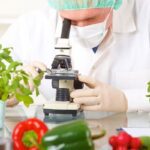The food technology industry is heading towards its peak growth. The food sector has also seen the fastest growth post-Covid. The food sector is stepping up to innovative trends and major breakthroughs to shape a brighter future
A year before the outbreak of the Covid-19 pandemic, the demand for plant-based food was already on the rise. Keeping pace with that trend, the food industry is witnessing a new trend in vegetarian food.
In 2020, sales of plant-based dairy and meat products were over $29 billion and are expected to increase to $162 billion by 2030. This means that plant-based meat and dairy alternatives account for about 8% of what is known globally.
Demand and acceptance of plant-based food products in India is increasing. Although the size is small – new launches in this category were only 0.7% of total launches in November 2019, although it rose to 2.1% in October 2022 – experts expect this number to increase further in the coming years.
“Our research shows that 34% of Indian consumers are motivated to switch to a completely plant-based diet. This increased interest is largely driven by consumers’ desire to improve their overall physical health, which has taken center stage during the pandemic and we expect it to continue,” said Tulsi Joshi, India senior food and beverage analyst at market research firm Mintel. says
Plant-based food refers to a range of products made from natural plant ingredients. These products are usually made from fruits, vegetables, oils, grains, nuts, and legumes, and no animal-derived items such as meat, milk, and eggs. Some examples of popular plant-based foods are tofu, tempeh, coconut, and almond milk. Such items are also gaining favor globally to address multiple issues such as health crisis, climate and animal cruelty. They have become a global phenomenon over the past few years due to a combination of trends in consumer behavior, product innovation and investment. Indeed, this boom has forced manufacturers and retailers to respond quickly to meet consumer interest with more brands featuring meat, cheese, milk and protein alternatives.
Seeing this popularity of plant-based foods, food technologists are now busy developing plant-based products that mimic the taste and texture of their animal-based counterparts. Another positive thing that goes hand in hand with this should not be overlooked – the fact that we are driven to use natural ingredients and minimize the use of artificial additives and preservatives! Consumers are increasingly looking for food products with clean and natural labels. As a result, food technologists have started exploring new packaging materials and techniques to reduce waste and improve the shelf life of food products.
The food industry has a responsibility to satisfy vegetarians as well as meat lovers. Then the growth reaches its peak. Accordingly, the birth of innovative technologies and the emergence of new industries in this field are increasing day by day. It is also noteworthy that the improvement in the working environment and the skills of the employees in the sector helps to increase the market value. People who can perform this role well have the unique opportunity to work in innovative food manufacturing establishments and improve the quality of products.
Along with this, people are now aware of the food they eat, its source, quality, nutrition, convenience and cost. The food processing industry needs to meet the nutritional needs and questions of consumers. This is where the importance of food technologists comes in.
The food processing industry is very vast and multifaceted and it offers promising career opportunities to the younger generation. But to work in a food processing industry, one needs to study and gain detailed knowledge of the subject and get a degree in the field.
As food industry is diverse, with literally thousands of different opportunities for a food scientist/ food technologist. They have access to many career opportunities in different environments. This is an attractive pathway for people looking to explore professional development opportunities or flexibility to make a future career change. You can work with a milk processinindustry, a winery, bakery industry, meat processing, flavour development, etc. As you study multidisciplinary subjects, it opens up a myriad of opportunities.
Graduates and post-graduates in food technology can find employment in a wide range of fields. The range extends to food processing companies, star hotels, catering establishments, soft drink manufacturing establishments, spices, rice mills, quality control organizations, hospitals, food research laboratories and packaging industries.
It is good to have certain skills and qualities to become a good food scientist. Let’s take a look at what it is –
Communication skills are the first among them. The ability to think and act from different perspectives and the ability to communicate it clearly will lead to higher opportunities in this field. There may be many occasions to share the project with new ideas, or perhaps an update. The process of communication involves listening, speaking, interpreting and understanding. Be able to understand spoken information; and to implement effectively.
The second is problem solving skills. In workplaces this ability often comes into play for control. It is beneficial for employees and companies. Ability to identify potential problems, find out why they are not working, and then develop an action plan to solve them. A food scientist must be able to understand the problems. He or she must be able to integrate information and draw conclusions from it. He or she should be able to identify new developments or changes that may occur in a system.
Mathematical skills are essential for many occupations and can enhance individual performance. Improving them can help you increase efficiency, reduce unnecessary reliance on individuals, prevent potential inaccuracies, and create new market opportunities. A food scientist must have strong mathematical skills. He or she should be able to add, subtract, multiply and divide accurately on the fingers. Must be able to use mathematical formulas to solve problems.
Effective time management enables you to get more done in less time. Enables you to take advantage of learning opportunities, reduces stress, helps you focus, which leads to professional success. Each time-management benefit improves a different part of life. Time management is an important aspect of this job. A food scientist should be able to figure out how well one is performing. Must be able to manage work in a timely manner while engaging in multiple activities.
Self-confidence skills – This job is often about having the confidence to try something new. At the same time, learning from mistakes is a big part of self-confidence. Mistakes can happen in experiments. Can fail many times. But once that magic happens – you’ll be on the cusp of confidence!





